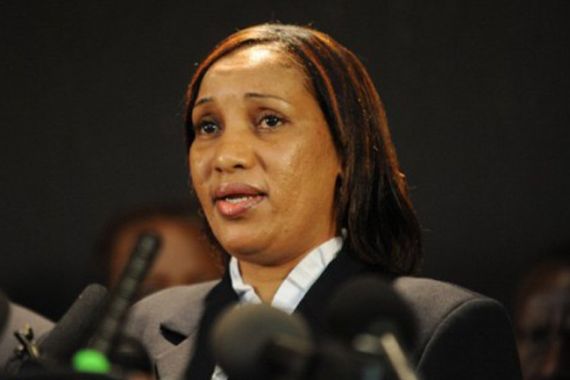US judge to decide Strauss-Kahn assault case
Lawyers of former IMF leader argue he has diplomatic immunity from a civil case on sexually assaulting hotel maid.

Dominique Strauss-Kahn’s lawyers have tried to persuade a New York judge to throw out a sexual assault case against the former International Monetary Fund leader, arguing that he has diplomatic immunity from a civil case that stems from allegations dropped in criminal court last year.
Bronx state Supreme Court Justice Douglas McKeon did not make an immediate decision during Wednesday’s hearing, which came as Strauss-Kahn faced fresh charges in his native France amid a prostitution investigation.
McKeon said he would issue a ruling “expeditiously” but did not specify a date.
Strauss-Kahn, once a potential French presidential candidate, was charged last year with attempted rape and other crimes after his May 14 encounter with hotel maid Nafissatou Diallo, but the criminal case was dismissed after prosecutors lost faith in her credibility.
Still, she vowed to have her day in court and sued Strauss-Kahn. He has called the encounter a “moral failing” but insists it wasn’t violent.
“Dismissal, your honor, may seem like an unfair result to some, but it’s the result the law compels,” said one of Strauss-Kahn’s lawyers, Amit Mehta.
But housekeeper Diallo’s lawyers said Strauss-Kahn was stretching the rules of immunity to shield himself.
“Strauss-Kahn doesn’t have immunity, and Ms. Diallo is going to get her day in court,” said one of Diallo’s lawyers, Douglas Wigdor.
Wednesday’s hearing, the first in the lawsuit, dealt with complex laws that shield diplomats from prosecution and lawsuits in their host countries.
Strauss-Kahn’s lawyers argued that their client is immune under a 1947 United Nations agreement that afforded the privilege to heads of “specialized agencies,” including the International Monetary Fund.
Although the United States didn’t sign that agreement, Strauss-Kahn’s attorneys say it has gained so much acceptance elsewhere that it has attained the status of what’s known as “customary international law.”
McKeon vigorously questioned Strauss-Kahn’s lawyers. He noted that the IMF’s own organizing documents specifically don’t grant its director the broad immunity Strauss-Kahn claims, and that Strauss-Kahn -who resigned his IMF post days after his arrest – did not assert immunity in the criminal case.
Neither Strauss-Kahn, 62, nor Diallo, 33, attended the hearing.
Scrutiny
Shortly after Strauss-Kahn’s arrest, an IMF spokesman said Strauss-Kahn didn’t have immunity because he was on personal business during his encounter with Diallo, Wigdor noted.
Strauss-Kahn, often dubbed “DSK,” was visiting his daughter in New York.
“DSK thinks he can unilaterally, himself, in his own personal capacity, assert diplomatic immunity and not be held accountable for his actions,” Wigdor said.
When police pulled Strauss-Kahn from an Air France flight and arrested him, he declared he had diplomatic immunity, but he ultimately didn’t push the issue amid the criminal case that eventually dissolved in August.
Since then, Strauss-Kahn has seen his sexual behavior scrutinized internationally.
On Monday, he was handed preliminary charges in France alleging he was involved in a hotel prostitution ring including prominent city figures and police in Lille.
Investigating judges questioned him for about eight hours and gave him preliminary charges of “aggravated procurement in an organized gang.”
Under French law, preliminary charges mean authorities have reason to believe a crime was committed but allow more time for investigation.
After Strauss-Kahn’s New York arrest, a French writer also came forward to say Strauss-Kahn tried to rape her during a 2003 interview, but Paris prosecutors said the case was too old to try.